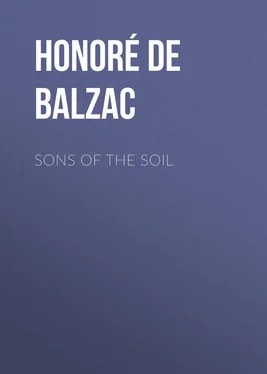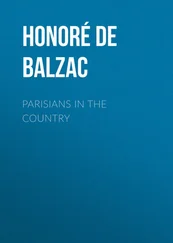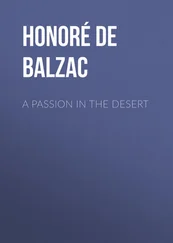Honoré Balzac - Sons of the Soil
Здесь есть возможность читать онлайн «Honoré Balzac - Sons of the Soil» — ознакомительный отрывок электронной книги совершенно бесплатно, а после прочтения отрывка купить полную версию. В некоторых случаях можно слушать аудио, скачать через торрент в формате fb2 и присутствует краткое содержание. Жанр: literature_19, foreign_antique, foreign_prose, на английском языке. Описание произведения, (предисловие) а так же отзывы посетителей доступны на портале библиотеки ЛибКат.
- Название:Sons of the Soil
- Автор:
- Жанр:
- Год:неизвестен
- ISBN:нет данных
- Рейтинг книги:5 / 5. Голосов: 1
-
Избранное:Добавить в избранное
- Отзывы:
-
Ваша оценка:
- 100
- 1
- 2
- 3
- 4
- 5
Sons of the Soil: краткое содержание, описание и аннотация
Предлагаем к чтению аннотацию, описание, краткое содержание или предисловие (зависит от того, что написал сам автор книги «Sons of the Soil»). Если вы не нашли необходимую информацию о книге — напишите в комментариях, мы постараемся отыскать её.
Sons of the Soil — читать онлайн ознакомительный отрывок
Ниже представлен текст книги, разбитый по страницам. Система сохранения места последней прочитанной страницы, позволяет с удобством читать онлайн бесплатно книгу «Sons of the Soil», без необходимости каждый раз заново искать на чём Вы остановились. Поставьте закладку, и сможете в любой момент перейти на страницу, на которой закончили чтение.
Интервал:
Закладка:
“That’s what I call a declaration of war,” said the general.
“Monseigneur,” retorted Fourchon, “when Les Aigues belonged to that poor Madame (God keep her soul and forgive her the sins of her youth!) we were happy. She let us get our food from the fields and our fuel from the forest; and was she any the poorer for it? And you, who are at least as rich as she, you hunt us like wild beasts, neither more nor less, and drag the poor before the courts. Well, evil will come of it! you’ll be the cause of some great calamity. Haven’t I just seen your keeper, that shuffling Vatel, half kill a poor old woman for a stick of wood? It is such fellows as that who make you an enemy to the poor; and the talk is very bitter against you. They curse you every bit as hard as they used to bless the late Madame. The curse of the poor, monseigneur, is a seed that grows, – grows taller than your tall oaks, and oak-wood builds the scaffold. Nobody here tells you the truth; and here it is, yes, the truth! I expect to die before long, and I risk very little in telling it to you, the truth ! I, who play for the peasants to dance at the great fetes at Soulanges, I heed what the people say. Well, they’re all against you; and they’ll make it impossible for you to stay here. If that damned Michaud of yours doesn’t change, they’ll force you to change him. There! that information and the otter are worth twenty francs, and more too.”
As the old fellow uttered the last words a man’s step was heard, and the individual just threatened by Fourchon entered unannounced. It was easy to see from the glance he threw at the old man that the threat had reached his ears, and all Fourchon’s insolence sank in a moment. The look produced precisely the same effect upon him that the eye of a policeman produces on a thief. Fourchon knew he was wrong, and that Michaud might very well accuse him of saying these things merely to terrify the inhabitants of Les Aigues.
“This is the minister of war,” said the general to Blondet, nodding at Michaud.
“Pardon me, madame, for having entered without asking if you were willing to receive me,” said the newcomer to the countess; “but I have urgent reasons for speaking to the general at once.”
Michaud, as he said this, took notice of Sibilet, whose expression of keen delight in Fourchon’s daring words was not seen by the four persons seated at the table, because they were so preoccupied by the old man; whereas Michaud, who for secret reasons watched Sibilet constantly, was struck with his air and manner.
“He has earned his twenty francs, Monsieur le comte,” said Sibilet; “the otter is fully worth it.”
“Give him twenty francs,” said the general to the footman.
“Do you mean to take my otter away from me?” said Blondet to the general.
“I shall have it stuffed,” replied the latter.
“Ah! but that good gentleman said I might keep the skin,” cried Fourchon.
“Well, then,” exclaimed the countess, hastily, “you shall have five francs more for the skin; but go away now.”
The powerful odor emitted by the pair made the dining-room so horribly offensive that Madame de Montcornet, whose senses were very delicate, would have been forced to leave the room if Fourchon and Mouche had remained. To this circumstance the old man was indebted for his twenty-five francs. He left the room with a timid glance at Michaud, making him an interminable series of bows.
“What I was saying to monseigneur, Monsieur Michaud,” he added, “was really for your good.”
“Or for that of those who pay you,” replied Michaud, with a searching look.
“When you have served the coffee, leave the room,” said the general to the servants, “and see that the doors are shut.”
Blondet, who had not yet seen the bailiff of Les Aigues, was conscious, as he now saw him, of a totally different impression from that conveyed by Sibilet. Just as the steward inspired distrust and repulsion, so Michaud commanded respect and confidence. The first attraction of his presence was a happy face, of a fine oval, pure in outline, in which the nose bore part, – a regularity which is lacking in the majority of French faces. Though the features were correct in drawing, they were not without expression, due, perhaps, to the harmonious coloring of the warm brown and ochre tints, indicative of physical health and strength. The clear brown eyes, which were bright and piercing, kept no reserves in the expression of his thought; they looked straight into the eyes of others. The broad white forehead was thrown still further into relief by his abundant black hair. Honesty, decision, and a saintly serenity were the animating points of this noble face, where a few deep lines upon the brow were the result of the man’s military career. Doubt and suspicion could there be read the moment they had entered his mind. His figure, like that of all men selected for the elite of the cavalry service, though shapely and elegant, was vigorously built. Michaud, who wore moustachios, whiskers, and a chin beard, recalled that martial type of face which a deluge of patriotic paintings and engravings came very near to making ridiculous. This type had the defect of being common in the French army; perhaps the continuance of the same emotions, the same camp sufferings from which none were exempt, neither high nor low, and more especially the same efforts of officers and men upon the battle-fields, may have contributed to produce this uniformity of countenance. Michaud, who was dressed in dark blue cloth, still wore the black satin stock and high boots of a soldier, which increased the slight stiffness and rigidity of his bearing. The shoulders sloped, the chest expanded, as though the man were still under arms. The red ribbon of the Legion of honor was in his buttonhole. In short, to give a last touch in one word about the moral qualities beneath this purely physical presentment, it may be said that while the steward, from the time he first entered upon his functions, never failed to call his master “Monsieur le comte,” Michaud never addressed him otherwise than as “General.”
Конец ознакомительного фрагмента.
Текст предоставлен ООО «ЛитРес».
Прочитайте эту книгу целиком, купив полную легальную версию на ЛитРес.
Безопасно оплатить книгу можно банковской картой Visa, MasterCard, Maestro, со счета мобильного телефона, с платежного терминала, в салоне МТС или Связной, через PayPal, WebMoney, Яндекс.Деньги, QIWI Кошелек, бонусными картами или другим удобным Вам способом.
1
I do not, on principle, like foot-notes, and this is the first I have ever allowed myself. Its historical interest must be my excuse; it will prove, moreover, that descriptions of battles should be something more than the dry particulars of technical writers, who for the last three thousand years have told us about left and right wings and centres being broken or driven in, but never a word about the soldier himself, his sufferings, and his heroism. The conscientious care with which I prepared myself to write the “Scenes from Military Life,” led me to many a battle-field once wet with the blood of France and her enemies. Among them I went to Wagram. When I reached the shores of the Danube, opposite Lobau, I noticed on the bank, which is covered with turf, certain undulations that reminded me of the furrows in a field of lucern. I asked the reason of it, thinking I should hear of some new method of agriculture: “There sleep the cavalry of the imperial guard,” said the peasant who served us as a guide; “those are their graves you see there.” The words made me shudder. Prince Frederic Schwartzenburg, who translated them, added that the man had himself driven one of the wagons laden with cuirasses. By one of the strange chances of war our guide had served a breakfast to Napoleon on the morning of the battle of Wagram. Though poor, he had kept the double napoleon which the Emperor gave him for his milk and his eggs. The curate of Gross-Aspern took us to the famous cemetery where French and Austrians struggled together knee-deep in blood, with a courage and obstinacy glorious to each. There, while explaining that a marble tablet (to which our attention had been attracted, and on which were inscribed the names of the owner of Gross-Aspern, who had been killed on the third day) was the sole compensation ever given to the family, he said, in a tone of deep sadness: “It was a time of great misery, and of great hopes; but now are the days of forgetfulness.” The saying seemed to me sublime in its simplicity; but when I came to reflect upon the matter, I felt there was some justification for the apparent ingratitude of the House of Austria. Neither nations nor kings are wealthy enough to reward all the devotions to which these tragic struggles give rise. Let those who serve a cause with a secret expectation of recompense, set a price upon their blood and become mercenaries. Those who wield either sword or pen for their country’s good ought to think of nothing but of doing their best , as our fathers used to say, and expect nothing, not even glory, except as a happy accident.
Читать дальшеИнтервал:
Закладка:
Похожие книги на «Sons of the Soil»
Представляем Вашему вниманию похожие книги на «Sons of the Soil» списком для выбора. Мы отобрали схожую по названию и смыслу литературу в надежде предоставить читателям больше вариантов отыскать новые, интересные, ещё непрочитанные произведения.
Обсуждение, отзывы о книге «Sons of the Soil» и просто собственные мнения читателей. Оставьте ваши комментарии, напишите, что Вы думаете о произведении, его смысле или главных героях. Укажите что конкретно понравилось, а что нет, и почему Вы так считаете.












